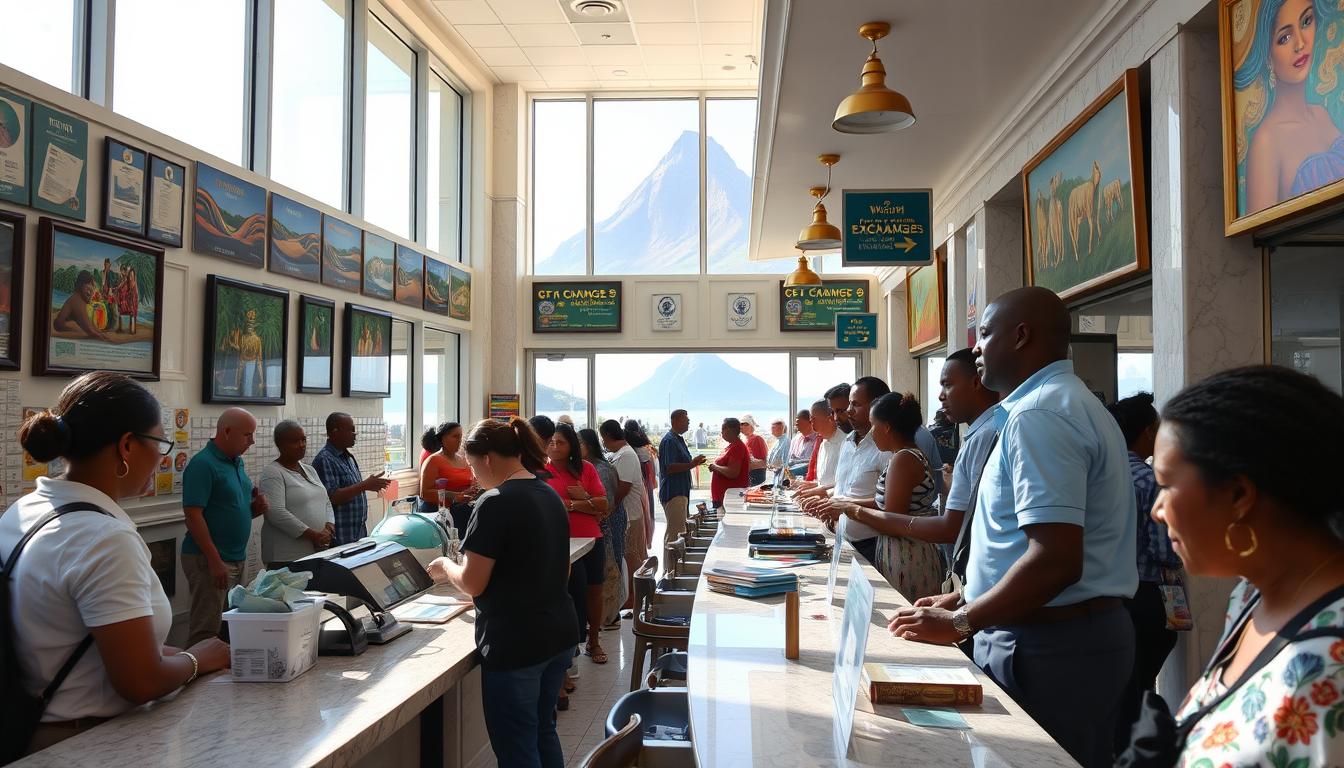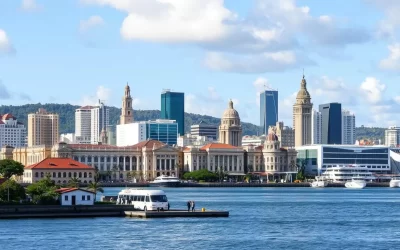✓ Accommodations✓ Flights✓ Rental Cars✓ Tours & Activities
Did you know that only 37% of retailers in Mauritius accept card payments? This surprising fact highlights the island’s strong reliance on cash for everyday transactions. Despite the rise of digital payments, cash remains king in local markets, small shops, and family-run businesses. For travelers, understanding the local currency and payment methods is essential for a smooth trip.
The official currency here is the Mauritian Rupee (MUR), and it’s widely used for everything from beachside snacks to car rentals. While major hotels and upscale restaurants often accept cards like Visa and Mastercard, having cash on hand ensures you’re prepared for any situation. ATMs are readily available in tourist areas, but it’s wise to check for foreign transaction fees.
Whether you’re exploring bustling markets or dining at a renowned restaurant, knowing how to manage your money will make your visit hassle-free. This guide will help you navigate the blend of cash and card payments, ensuring you enjoy every moment of your trip.
Currency Exchange in Mauritius
Finding the best places to exchange currency ensures you get the most value for your cash. Whether you’re arriving by flight or exploring the island, knowing where to swap your money is key. Local banks like SBM and MCB are reliable options, offering competitive rates and secure transactions.
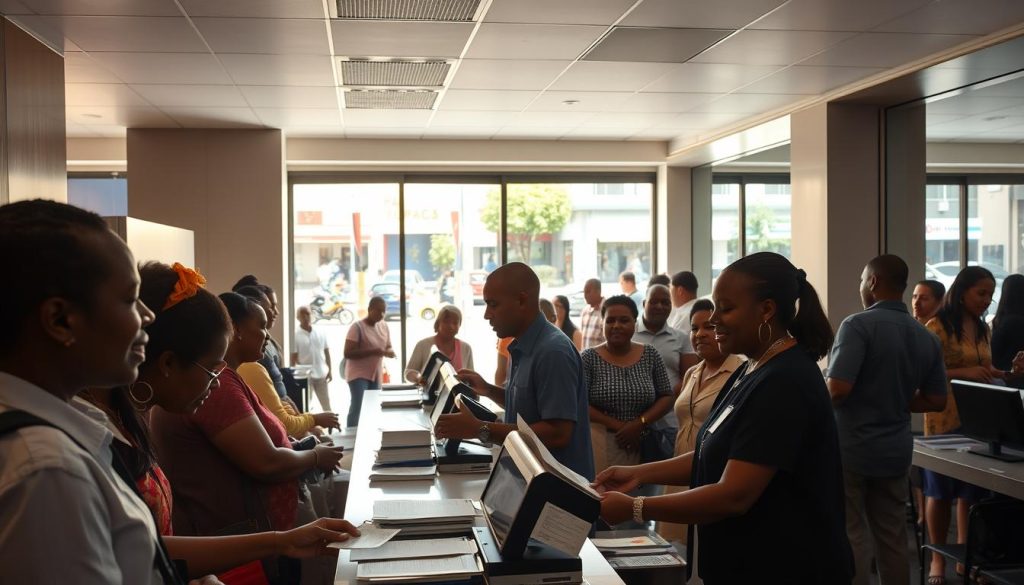
Licensed exchange bureaus, such as Shibani Finance Co. and Thomas Cook, are also great choices. These places often provide better rates than airports or hotels. Always compare services and fees to make the most of your money.
Where to Exchange Your Currency
Banks are a top choice for exchanging currency. They are widely available in city centers and tourist areas. Most operate from 9 AM to 3 PM on weekdays, so plan accordingly. ATMs are another option, but check for foreign transaction fees before withdrawing cash.
Authorized exchange bureaus are convenient and often offer better rates than banks. Shibani Finance Co. and Thomas Cook are trusted names with multiple branches across the island. Avoid exchanging money at airports, as their rates are usually less favorable.
Comparing Exchange Rates and Services
When comparing rates, city centers typically offer better deals than airports or hotels. Use apps like ATM Fee Saver to find the best rates and avoid hidden charges. Always carry a small amount of local currency for immediate expenses like taxis or snacks.
Exchange services may charge fees ranging from 1% to 3% of the total amount. Banks and licensed bureaus often have lower fees compared to hotels or airport kiosks. Planning ahead can save you both time and money during your trip.
Mauritius: Ultimate Travelers Guide to Currencies & Payments
Getting cash quickly can make your trip smoother and more enjoyable. Whether you’re shopping at local markets or dining at a cozy restaurant, having the local currency on hand is essential. Here’s how to access cash efficiently and avoid poor exchange rates.
Accessing Cash Efficiently
ATMs are your best friend when it comes to withdrawing cash. Most accept international cards, but watch out for fees. Banks like SBM and MCB offer reliable ATM services with minimal commissions. For larger amounts, consider using a low-cost ATM card to save on fees.
Exchange bureaus are another great option. Places like Shibani Finance Co. and Thomas Cook provide competitive rates. Avoid exchanging money at airports or hotels, as their rates are often less favorable. Plan ahead and compare services to get the best deal.
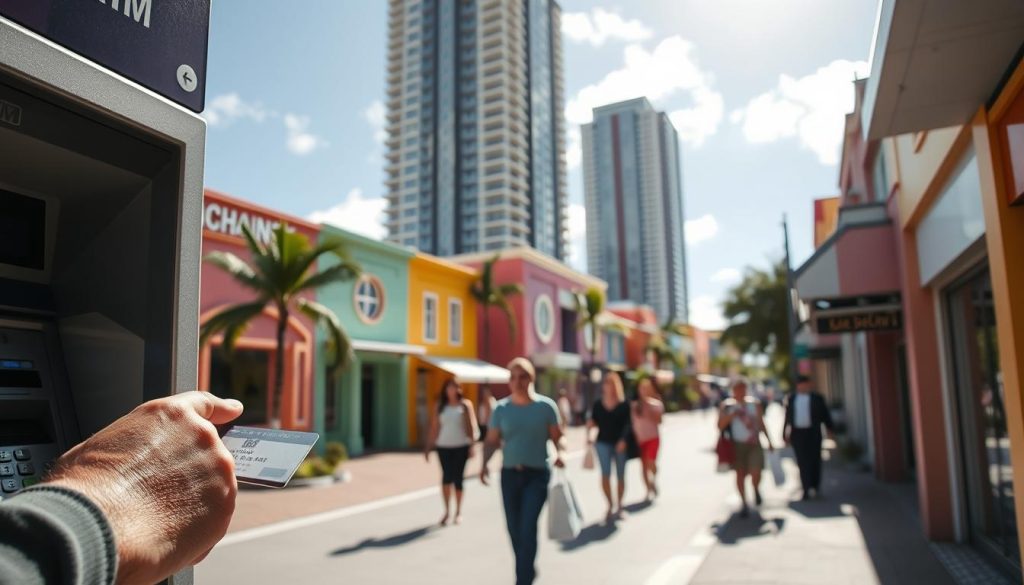
Avoiding Unfavorable Exchange Rates
To avoid poor rates, always compare options before exchanging your money. City centers typically offer better deals than tourist hotspots. Use apps like ATM Fee Saver to find the best rates and avoid hidden charges.
Here’s a quick comparison of exchange options:
| Option | Pros | Cons |
|---|---|---|
| Banks | Reliable, secure, competitive rates | Limited operating hours |
| Exchange Bureaus | Better rates, convenient locations | May charge small fees |
| ATMs | Widely available, quick access | Foreign transaction fees |
| Airports/Hotels | Convenient | Poor rates, high fees |
Pro tip: Carry a mix of cash and cards to cover all your needs. This way, you’re prepared for any situation, whether it’s a small shop or a car rental.
“Planning your cash needs ahead of time can save you both money and stress during your trip.”
By following these tips, you’ll have seamless access to cash and avoid unnecessary expenses. Enjoy your trip without worrying about money!
Using Credit, Debit Cards, and ATMs on the Island
Managing your money wisely can make your island adventure stress-free. Whether you’re dining at a restaurant, shopping at a local shop, or booking a rental, knowing how to use cards and ATMs ensures a smooth experience. Here’s what you need to know to navigate payments efficiently.
Understanding Card Acceptance and Fees
Major credit and debit cards like Visa and Mastercard are widely accepted at hotels, upscale restaurants, and larger retailers. However, smaller vendors often prefer cash. Always check for foreign transaction fees, which can add up quickly.
Here are some tips to avoid unnecessary costs:
- Use cards with low or no foreign transaction fees.
- Pay in the local currency to avoid conversion charges.
- Keep a backup card for emergencies.
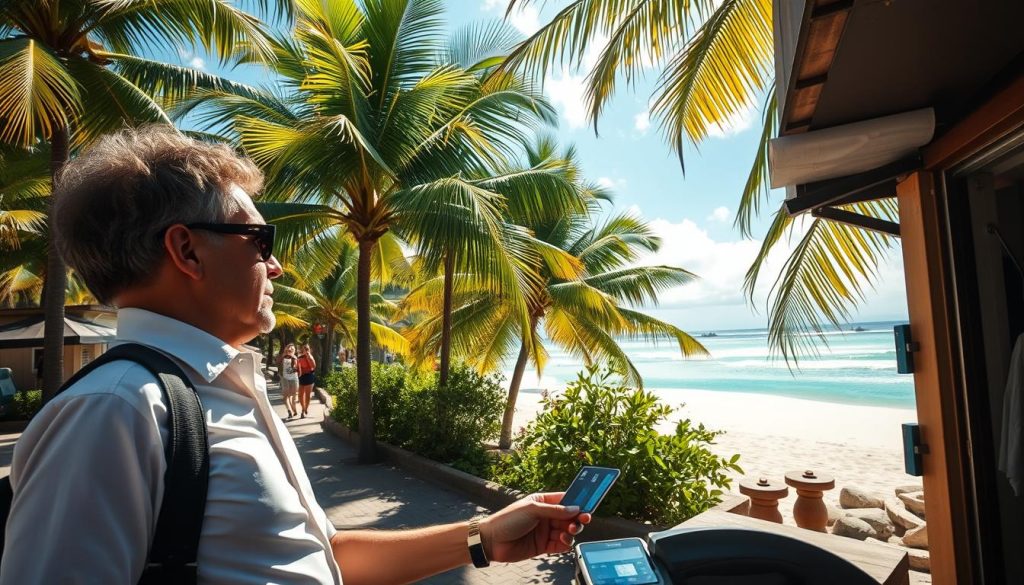
ATM Withdrawal Tips and Best Locations
ATMs are widely available in towns and tourist areas, making it easy to access cash. Banks like SBM and MCB offer reliable services with minimal fees. Here’s how to make the most of ATMs:
- Withdraw larger amounts to reduce transaction fees.
- Use ATMs located inside banks for added security.
- Avoid airport ATMs, as they often have higher fees.
By following these tips, you’ll save time and money, ensuring a hassle-free trip.
Money Management, Security, and Budget Tips for Your Trip
Keeping your money safe and managing your budget effectively can make your trip stress-free and enjoyable. Whether you’re exploring bustling markets or dining at a cozy restaurant, these tips will help you stay secure and within your budget.
Strategies for Secure Transactions
Protecting your cash and cards is essential while traveling. Use discreet wallets or money belts to keep your valuables hidden. Divide your money among different secure storage options, such as a hidden pouch and a locked bag in your hotel room.
For card transactions, opt for fee-free options to avoid unnecessary costs. Always pay in the local currency to bypass dynamic currency conversion fees. Here’s a quick comparison of secure storage methods:

| Storage Method | Pros | Cons |
|---|---|---|
| Money Belt | Discreet, secure | Less accessible |
| Hidden Pouch | Easy to carry | Limited space |
| Hotel Safe | Highly secure | Not portable |
Pro tip: Use ATMs located inside banks for added security and better exchange rates.
Planning Your Daily Budget
Creating a daily budget ensures you have enough funds for all your activities. Start by allocating amounts for meals, transport, and small purchases. For example, budget around $50 per day for food and $20 for local transport.
Here are some budgeting tips:
- Carry small amounts of cash for tips and market purchases.
- Use apps to track your spending in real-time.
- Set aside a contingency fund for unexpected expenses.
“A well-planned budget allows you to enjoy your trip without financial stress.”
By following these strategies, you’ll manage your money wisely and focus on making unforgettable memories.
Conclusion
Handling your finances smartly ensures a smooth and enjoyable experience. Using the local currency is the best way to avoid extra fees and get the most value for your money. Whether you’re withdrawing cash from a bank or using cards at a hotel, planning ahead saves time and stress.
Always compare exchange rates and opt for secure methods like ATMs in trusted locations. Keep a mix of cash and cards to cover all your needs, from small purchases to larger expenses. By following these tips, you’ll stay prepared and confident throughout your journey.
The above is subject to change.
Check back often to TRAVEL.COM for the latest travel tips and deals.
